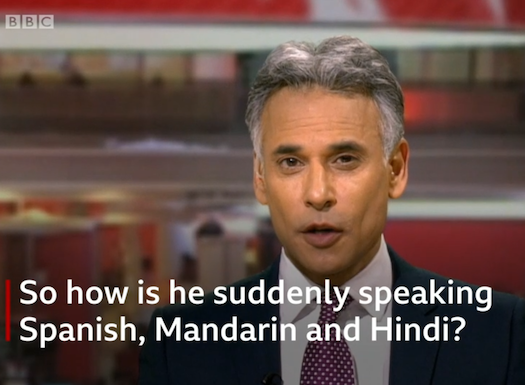Manipulation of images and audio is becoming so sophisticated that it is producing chilling fakes with the potential to cause discontent and influence elections.
The phenomenon, produced with a combination of editing technology and artificial intelligence, is known as ‘deep fakes’ and is one of the biggest media disinformation trends this year.
Predictions are that the malicious trend will be used to disrupt elections around the world. In countries where media literacy is low and people are not aware of what can be done with technology, deep fakes can spread fast on social media.
Radio and television professionals have always known the potential for selective editing to be able to manipulate a message, and, in responsible media companies, they have been taught not to use editing to create false information. This new technology takes mailcious editing to new heights and puts it in the hands of untrained or unscrupulous players.
Speaking in a media literacy session during this week’s Radio Asia conference in Balgladesh, the BBC’s Indu Shekhar Sinha gave a powerful example of deep fake technology.
The BBC used the technology on its newsreader Matthew Amroliwala to illustrate just what could be done. They gave him the gift of tongues, making him speak in three languages which he has never learned.
The AI powered editing system literally put words into his mouth that he had not spoken.
Matthew only speaks English, but by using artificial intelligence software he suddenly appears to be speaking Spanish, Mandarin and Hindi.
The technique uses software that replaces the original voice and mouth movements of the subject. The software, created by London based start-up Synthesia, mapped and manipulated Amroliwala’s lips to mouth the different languages. Amroliwala was asked to read a script and the same phrases were also read by speakers of other languages and inserted into his mouth.
Similar technology is being used in audio to synthesize voices of well known people and make them read scripts with words they have never said. It is another level beyond simply taking words from an audio recording and editing them in different order, this technology can totally recreate a voice.
There is no legislation to control deep fakes because the technology is so new.
To combat this trend, Facebook is asking anyone with the expertise to help them detect deep fakes. The FB Deepfake Detection Challenge invites people around the world to build innovative new technologies that can help detect deep fakes and manipulated media. Click here for more details.
In this Global Media and Information Literacy week, it is worth thinking about how to educate your audiences about these trends and warn them that the harm disinformation can spread in society. More about UNESCO’s literacy week here.


